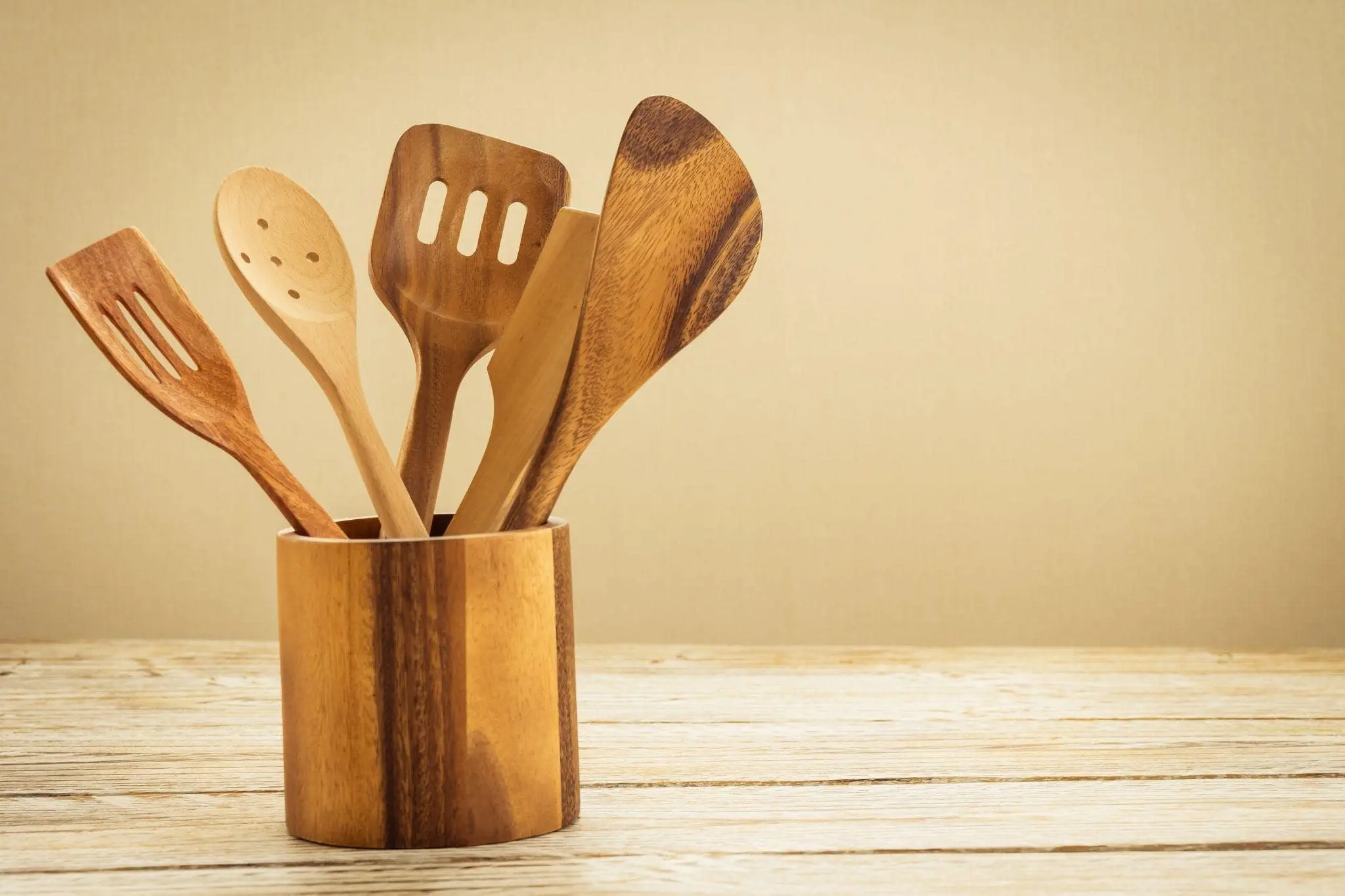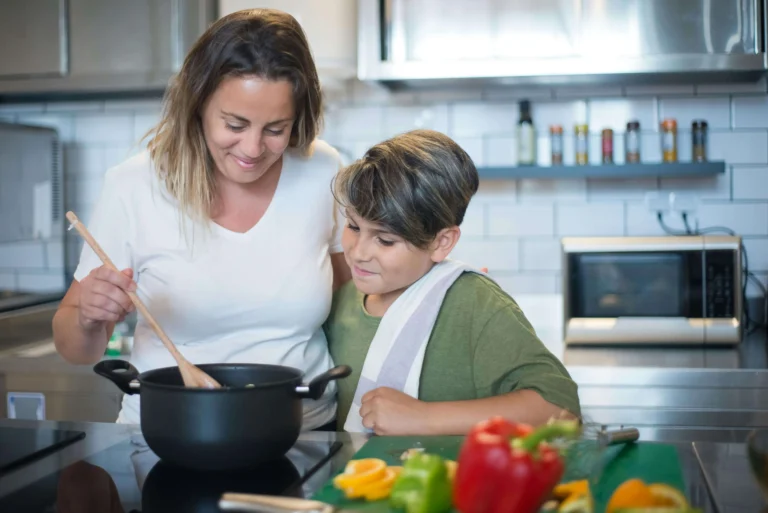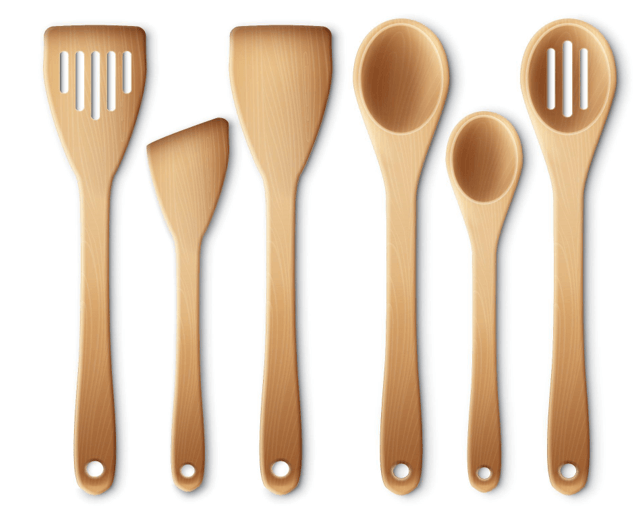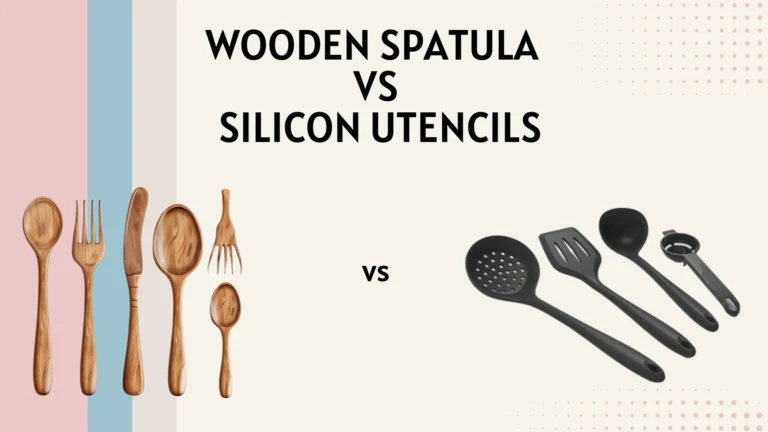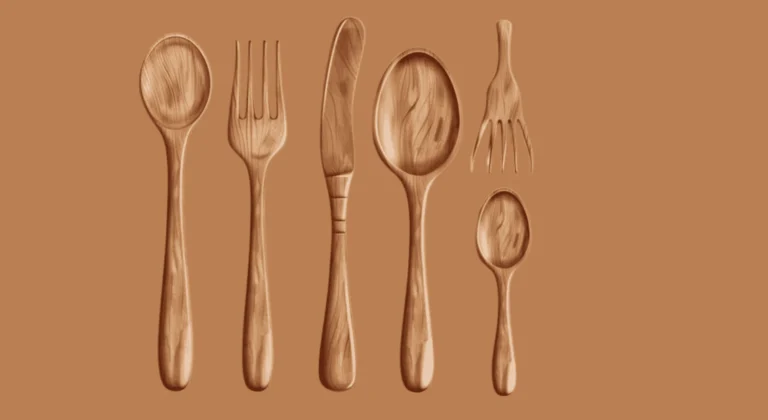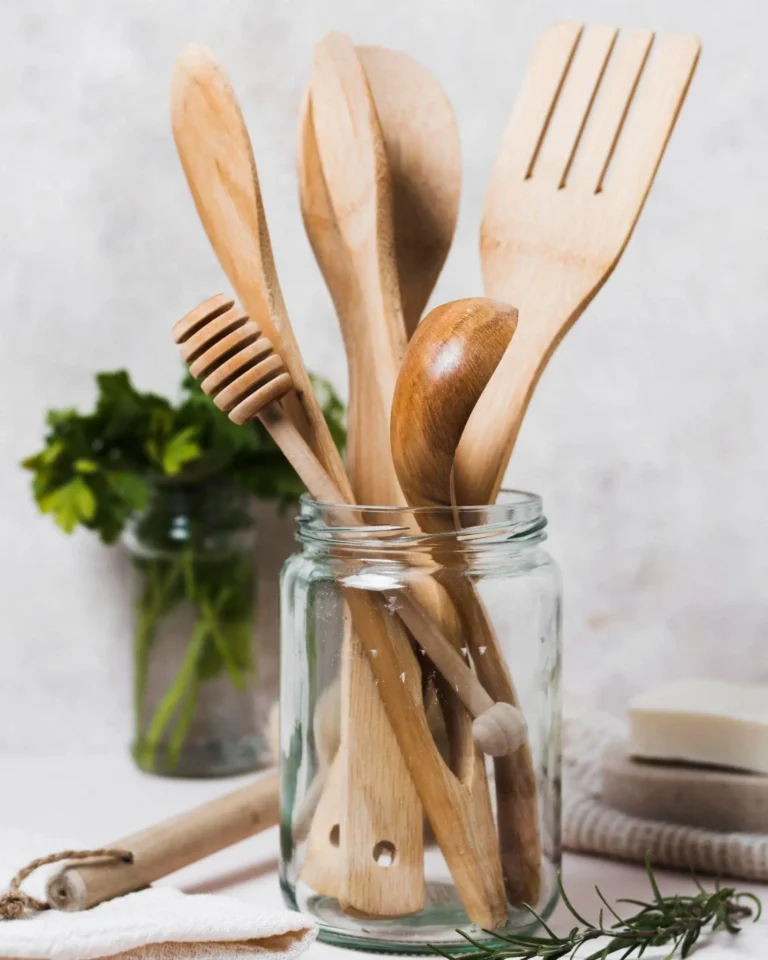Best Wooden Cooking Utensils vs Bamboo – Pros & Cons Before You Buy
Introduction – Why Does Choosing the Right Cooking Utensils Matter?
Are you tired of your rusty, boring, and potentially toxic cooking utensils? Do you want to switch to something fun and beneficial? Wooden Cooking Utensils are what you are looking for. Wooden cooking utensils have been a staple in kitchens for centuries. Whether stirring, flipping, or serving, wooden utensils offer a timeless charm and a reliable cooking experience.
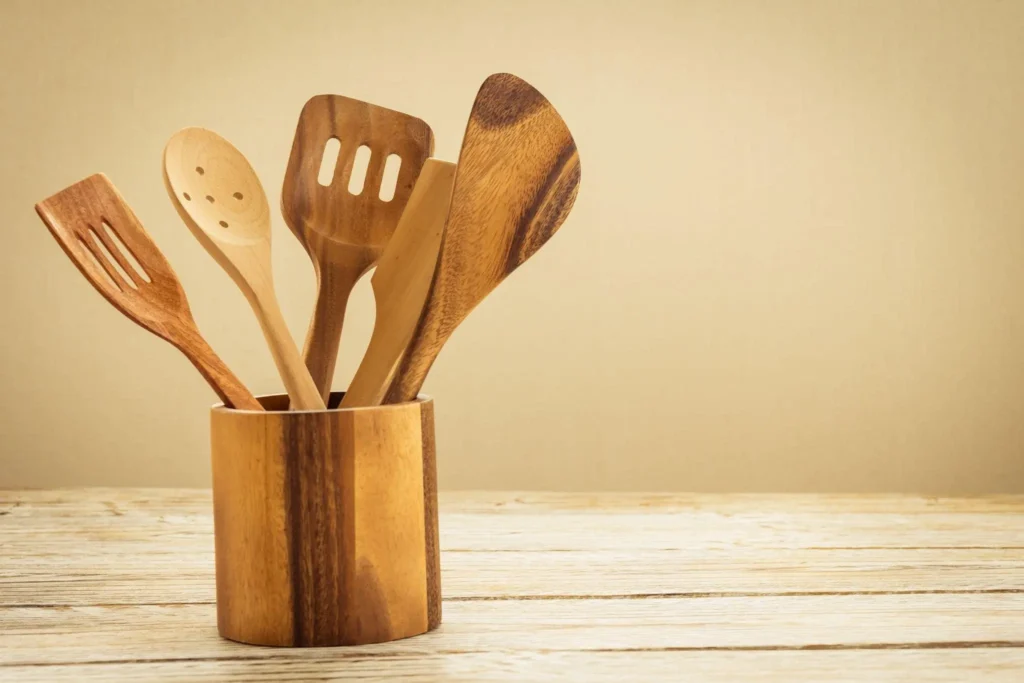
Types of Wooden Cooking Utensils
Spoons
Spoons are used for stirring, mixing, and serving.
Spatulas
Spatulas are perfect for flipping food like pancakes or eggs.
Ladle
A ladle is used to serve liquid foods like soup.
Tongs
Tongs are used for holding or grabbing hot food items safely
Why Wooden Cooking Utensils Are the Best Choice?
- Durable
Good quality wooden cooking utensils can last a lifetime with proper care.
- Eco-friendly
Wooden Cooking Utensils are biodegradable and often made of wood sourced from sustainable forests.
- Heat-resistant
Wood is not a good heat conductor, making wooden spatulas heat-resistant. So you won’t burn your hands while cooking anymore.
- Non-Scratchy
Wooden cooking utensils are gentle on your non-stick cookware. With smooth edges, wooden spatulas ensure that your beloved pans and pots enjoy a scratch-free life.
- Non-reactive
Wooden cooking utensils are non-reactive to food, which means you don’t have to worry about toxins in your food anymore.
- Naturally Antibacterial
Wood has natural antibacterial properties, making wooden cooking utensils the best choice for the kitchen.
Caring for Your Wooden and Bamboo Utensils to Make Them Last
With proper care and maintenance, your wooden kitchen utensils can stay with you forever.
- Hand wash
Wooden utensils shouldn’t be washed in the dishwasher. Instead, wash them with your hands. simply take regular dishwashing soap, apply on the spatula, and rinse with water.
- Tap dry instantly
Anything made of wood shouldn’t be left in water for a long time. So after washing your wooden cooking utensils, you should tap dry them with a clean towel immediately and keep them in an airy, dry space.
- Apply oil occasionally
It’s better to apply mineral oil once or twice a month on your wooden cooking utensils. This helps prevent cracking or breaking.
Want a complete guide to cleaning and maintaining your wooden cooking utensils? Have a look:
Beech wood vs bamboo utensils: Which Cooking Utensil Material is best?
There is a lot of wood that can be used to make cooking utensils. The most popular ones are Teak, Maple, Bamboo, Beach wood, Acacia, etc. Let’s discuss the two most common types of wooden cooking utensils.
Bamboo Cooking Utensils
Best bamboo cooking utensils: Bamboo cooking utensils are lightweight, durable, and budget-friendly. Bamboo wood is a renewable source, and this makes it the most sustainable option for kitchen utensils. Want to order your set of bamboo cooking utensils? Check this:
Beech wood Cooking Utensils
Beechwood is a hardwood that is famous for its durability, strength, and fine grain. That is why cooking utensils made from beechwood are resilient. Beechwood cooking utensils are very affordable but are slightly less water resistant than other types of hardwood. Get your set of beechwood cooking utensils here:
To learn about other Wooden Cooking Utensils like Acacia, Teak, or Maple, check this out
Conclusion:Which cooking utensil material is best for health
Wooden cooking utensils are a must-have for every kitchen. Who doesn’t need a durable, healthy, and eco-friendly alternative to plastic or silicone kitchen accessories? With proper care, you can have a satisfying cooking experience for a lifetime. Whether it’s Teak, Maple, Beechwood, or any other type, just select one and switch today.
Frequently Asked Questions (FAQs)
- Are wooden utensils safe for health?
Wooden utensils are the safest option for any kitchen. They are heat-resistant, antibacterial, and eco-friendly.
- Teak vs. Bamboo, which is the best for cooking utensils?
Both types have their pros and cons.
| Teak Wood | Bamboo Wood |
| Highly durable | Less durable |
| Heavy | lightweight |
| Less sustainable | Highly sustainable |
| More expensive | Affordable and easily available |
- How should I store wooden utensils?
Wooden utensils should be kept in an airy and dry space. Moisture can cause damage.
- Are wooden utensils safe for high-temperature cooking?
Wooden utensils are safe for high-temperature cooking as wood is a poor conductor of heat.
- Do wooden utensils hold bacteria?
No, wood has natural antibacterial properties.

